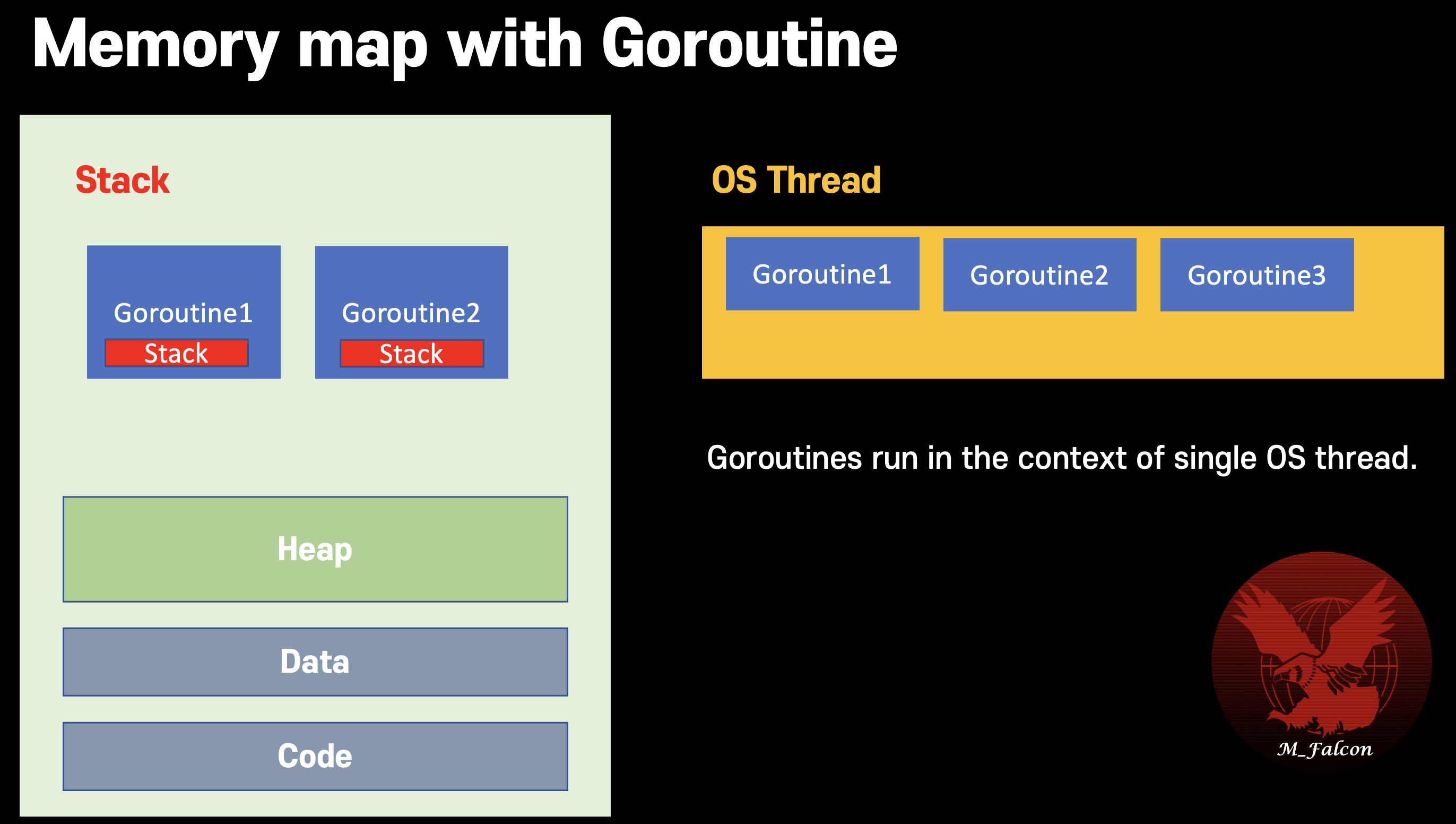Goroutine
Old concurrency problem
- Race condition
This occurs when order of execution is not guaranteed. - Deadlock
Concurrent program has risk of Blocking.
Expect next program output.
It shows race condition , this program output is different whenever execution.
package goroutine
import (
"log"
"testing"
)
func TestGoroutine(t *testing.T) {
var sharedData int = 0
go func() {
sharedData++
}()
if sharedData == 0 { // if goroutine gets scheduled after this line
// sharedData is already '1' incremented from 0
log.Printf("Data is %v", sharedData) // print 1
}
}
Solution
Locking mechanism (e.g. Mutex, Semaphore)
Limit of locking
- Reduce performance, parallelism since it forces to execute sequentially
- Deadlock risk if there's circular reference.
Communicating Sequential Process (CSP)
- Each process is built for sequential execution.
- Data is communicated between processes.
No shared memory
=> This protects from deadlock or race condition. - Scale by adding more of the same.
Concurrency in go
Goroutines
Goroutine is user space light-weight thread managed by go runtime.
Goroutines starts with 2KB of stack whcih grows and shrinks as required.
Can create hundreds of thousdands of goroutines in the same address space.
Goroutine doesn't use shared memory to avoid deadlock or race condition problem.
Goroutine is different to thread.
This is running in the context of the OS threads. Many goroutines can be executed in the context of the single OS thread.
Memory map of goroutine

WaitGroup
Wrong example
Calling WaitGroup.Add() in function is bad approach.
If goroutine failed to get scheduling, then main routine return without blocking leaving goroutine is not executed.
func asyncDoSomething(wg *sync.WaitGroup) {
wg.Add(1) // ❌ increment is not executed if goroutine couldn't have the chance to be executed.
defer wg.Done() // decrement dynamically
// ..
}
func main() {
waitGroup := &sync.WaitGroup{}
go asyncDoSomething(waitGroup)
waitGroup.Wait()
}
Right example
Always use
waitGroup.add()outside of goroutine function.
For goroutine have to have chance to execute.
func asyncDoSomething(wg *sync.WaitGroup) {
defer wg.Done()
// ..
}
func main() {
waitGroup := &sync.WaitGroup{}
waitGroup.add(1) // ✅ Enclosure scope add()
go asyncDoSomething(waitGroup)
waitGroup.Wait()
}